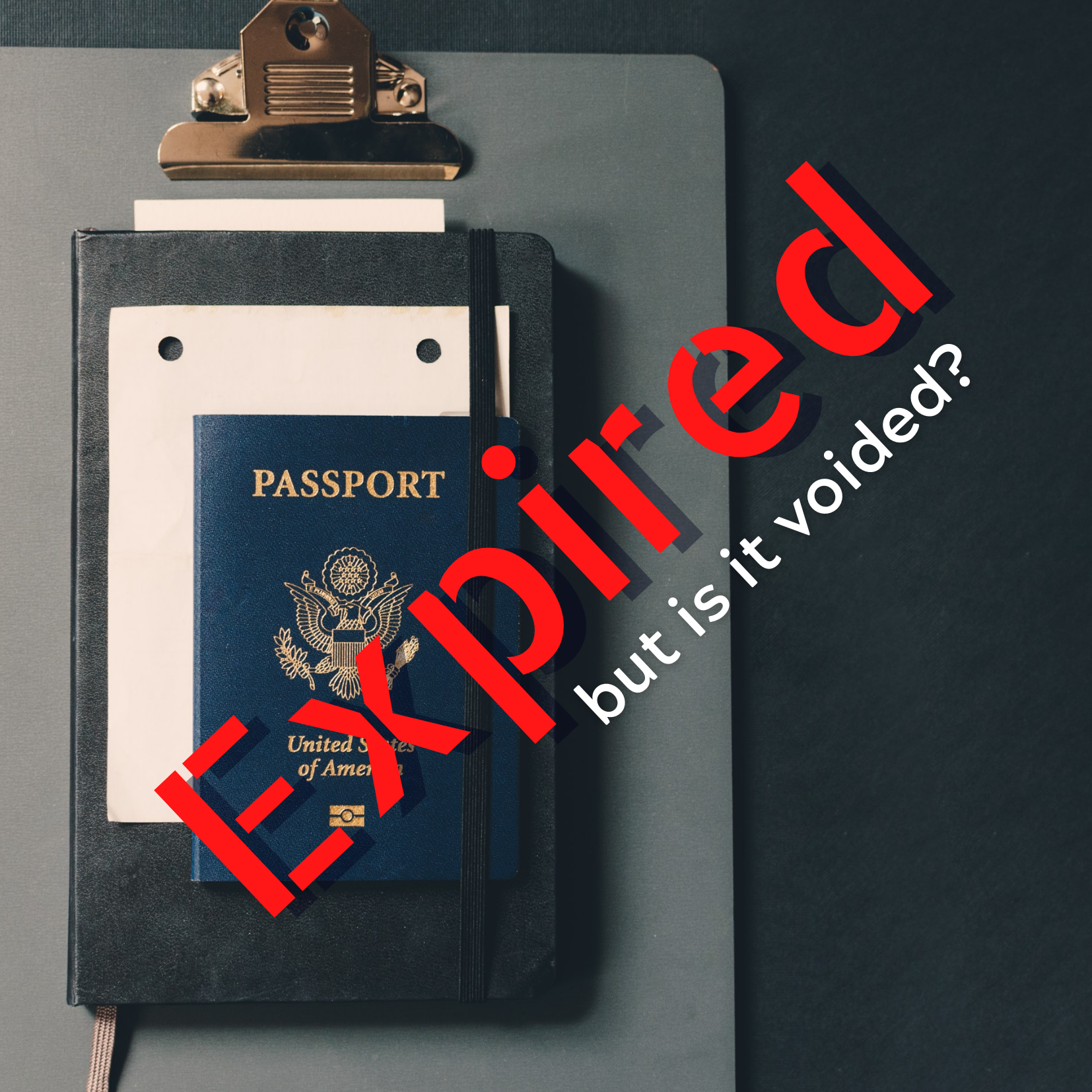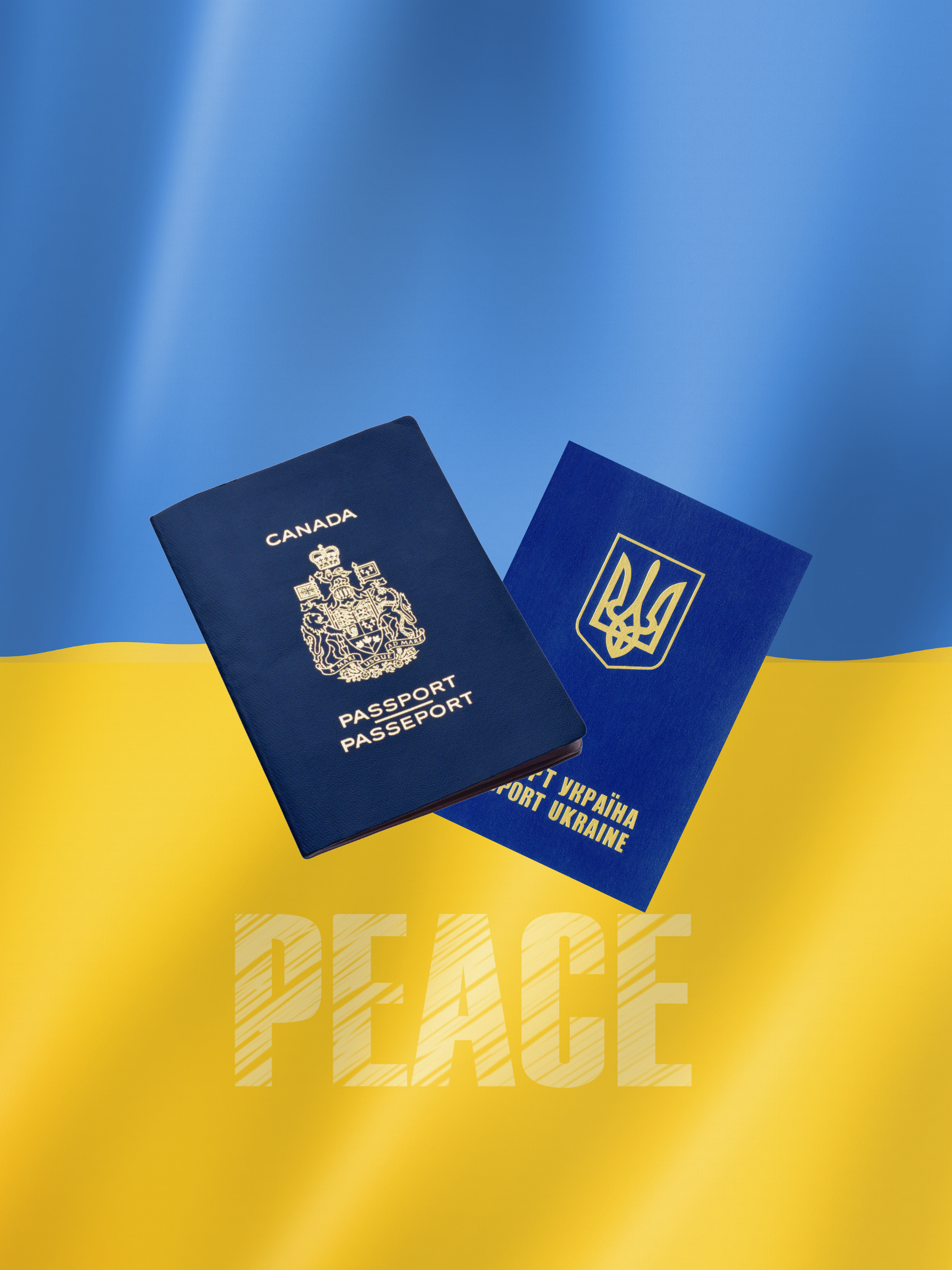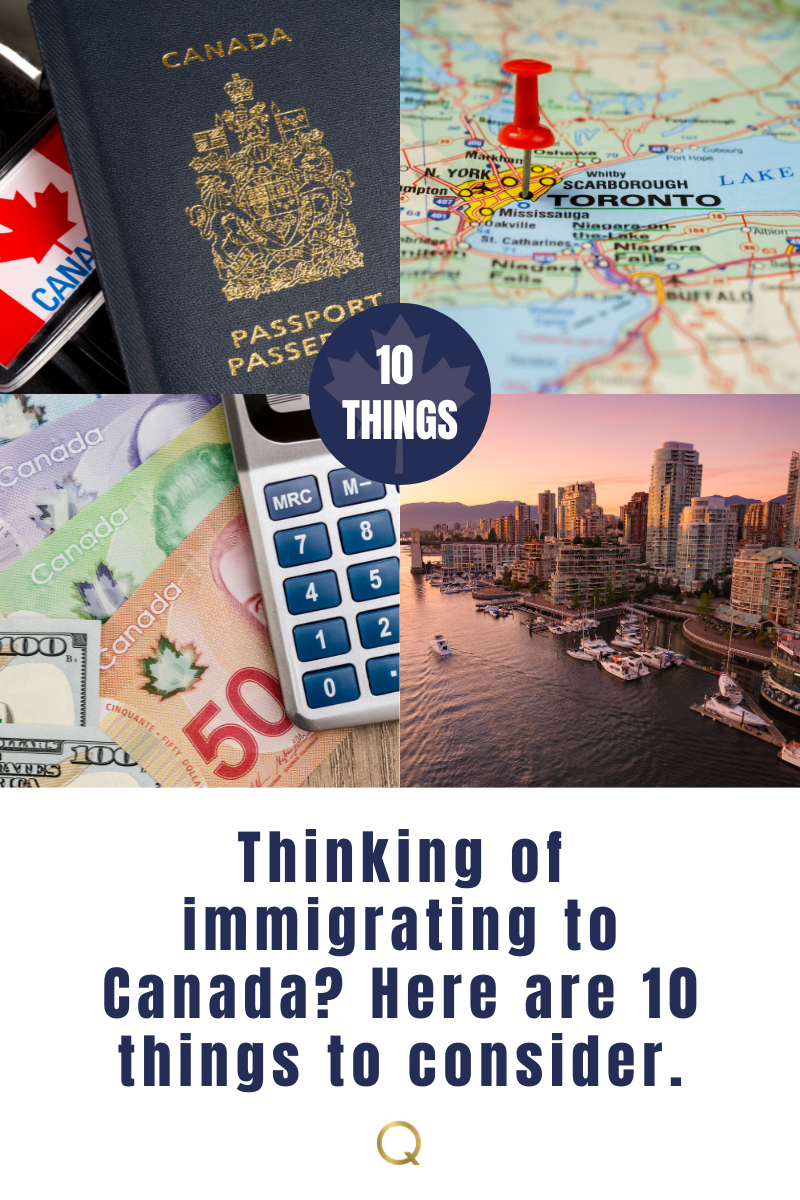This is where many people run into problems. It is absolutely vital that you submit…


This is where many people run into problems. It is absolutely vital that you submit…

For a limited time, some temporary residents who are out of status in Canada may apply to restore their status, even if they are outside of the 90-day restoration window.

This new program will benefit Ukrainians who wish to come to Canada now, as well as those already in Canada who wish to extend their stay. Ukrainians may also include their immediate family members of any nationality on their application.
Immigration, Refugees and Citizenship Canada (IRCC) announced a new temporary residence program for Ukrainians today, called the Canada-Ukraine Authorization for Emergency Travel (CUAET). This new program will benefit Ukrainians who wish to come to Canada now, as well as those already in Canada who wish to extend their stay. Ukrainians may also include their immediate family members of any nationality on their application. IRCC defines an immediate family member as a spouse, a common-law partner, or a dependent child. The definition also includes dependent step-children, as well as the children of dependent children (grandchildren).
Under the CUAET, applicants outside of Canada may apply for a visitor visa and a three-year open work permit. IRCC is waiving processing fees and vaccination requirements for these applicants, and most applications will be processed within 14 days. IRCC will issue a single journey document to any applicant who does not have a passport. Applicants already in Canada may now apply to extend their status for up to three years.
It should be noted that the CUAET is a temporary residence program which does not, in itself, lead to permanent residence. However, IRCC has a number of permanent residence streams under which individuals may qualify, either now or after gaining Canadian work experience. If applicants wish to remain in Canada permanently, they should review their options for permanent residence soon after arriving in Canada, in order to choose the best stream and work towards an application.
Disclaimer:
No information in this blog should be construed as legal advice. Should you have any questions about Canadian immigration law, please contact the Author.

A non-Canadian who enters into a contract for the purchase of residential property and becomes liable to complete the purchase before January 1 is also exempted from the ban, whether the sale actually completes before or after January 1.
Purchase of Residential Real Estate Restricted on January 1, 2023
The Prohibition on the Purchase of Residential Property by Non-Canadians Act (the “Act”) comes into effect on January 1, 2023. The Act, which will remain in force for two years, bans most non-Canadians from purchasing residential property in Canada while it is in force.
To understand the scope of the Act, it is important to understand the term “non-Canadian” as the Act defines it. A non-Canadian is a person who is neither a Canadian citizen, a permanent resident of Canada, nor a person registered as an Indian under the Indian Act. Foreign corporations, as well as Canadian (and provincial) corporations controlled by non-Canadians, are also defined as non-Canadian. Residential property includes detached homes, condos, townhouses, and all other structures constructed for the purpose of residential housing. A non-Canadian who purchases residential property while the Act is in force will be subject to penalties, which include a fine of up to $10,000 on conviction, and a forced sale of the property. Lawyers and real estate professionals who aid in the purchase of property in contravention of the Act are also subject to a fine of up to $10,000 on conviction.
The Act does contain some exemptions. The ban will not apply to a person who purchases residential property with their spouse or common-law partner who is a Canadian citizen, permanent resident, or who is otherwise not prohibited from purchasing residentialproperty under the Act. The ban will also not apply to refugees or to certain temporary residents. A non-Canadian who enters into a contract for the purchase of residential property and becomes liable to complete the purchase before January 1 is also exempted from the ban, whether the sale actually completes before or after January 1.
The Government of Canada has not yet published the regulations to the Act as of November 8, 2022. The regulations, when published, will specify the types of temporary residents who are exempted from the ban. The regulations may also limit the ban to certain geographical areas, such as the metropolitan areas of major cities. Notably, the Act does not affect the validity of contracts or purchases made by non-Canadians. A non-Canadian may therefore be able to enter into and complete a sale while the ban is in force, only to be convicted after completion. If you are considering a purchase of residential property and you are caught within the definition of non-Canadian, it is vital that you be aware of the Act and the ways in which it will impact you.

The advantage to in-Canada processing is that IRCC will send the work permit to the applicant in the mail. The applicant will not need to leave and re-enter Canada in order to receive their work permit.
On March 1, 2023, Immigration, Refugees and Citizenship Canada (IRCC) extended the public policy allowing certain visitors in Canada to apply for an employer-specific work permit until February 28, 2025.
The wording of the announcement, as well as the wording that is sometimes used to report the announcement on social media, has led to some confusion. We have had questions from visitors over the past few weeks who have wondered if they now qualify for a work permit, since they are visitors and have received a casual job offer.
To clarify, this public policy is concerned only with place of application requirements. It does not ease work permit eligibility requirements. As before, a foreign national must receive a job offer backed by a labour market impact assessment (LMIA) or qualify for an LMIA-exempt work permit through the International Mobility Program, in order to be eligible for a work permit.
So, what does this public policy actually do? It amends the place of application requirements. Before the public policy came into force, a visitor in Canada would have to submit an application for a work permit outside Canada or, in the case of visa-exempt applicants, at a port of entry. A visitor in Canada submitting their application outside Canada could do so online and, assuming they have valid visitor status until a decision is made, could remain in Canada during processing. Once the application is approved though, the applicant would need to leave and re-enter Canada in order to have their work permit printed by a Canada Border Services Agency (CBSA) officer. Through the public policy, a visitor in Canada may now submit their application for a work permit online and have it processed from within Canada. The advantage to in-Canada processing is that IRCC will send the work permit to the applicant in the mail. The applicant will not need to leave and re-enter Canada in order to receive their work permit.
Whether or not this public policy is actually helpful to an applicant is highly dependent upon their situation and priorities. The estimated processing time for a work permit submitted inside Canada is currently 154 days. If the applicant holds the passport of a country that enjoys a significantly shorter processing time through a visa office abroad, it may be faster to submit the application from outside Canada. However, if the applicant wants to avoid an examination by a CBSA officer or if their visitor status will likely expire during processing of an outside application, it may be preferable to submit the application from inside of Canada, regardless of the longer processing times.
Are you a visitor in Canada who would like to remain here, but you are unsure of your options? We would be happy to arrange a consultation, during which we would discuss your possible pathways to a work permit or permanent resident status. Contact our office for details, including consultation fees and availability.

The decision to move to a new country is a big one, so it’s important to consider all the factors before making the move.
Are you considering immigrating to Canada? The decision to move to a new country is a big one, so it’s important to consider all the factors before making the move. Here are ten tips to help you prepare for your move and ensure a successful transition to Canada. Whether you are immigrating for work or family reasons, these tips will help you navigate the process and provide insight into what life in Canada is like. Read on for some helpful advice to get you started on your journey to a new life in Canada!
1) Understanding the immigration process in Canada
Canada has become a popular destination for immigrants, offering opportunities for a better quality of life, career growth, and excellent healthcare services. The process of Canadian immigration is an intricate and multi-step procedure that involves several stages.
The Canadian government welcomes skilled workers, entrepreneurs, investors, students, and family members to come and settle in Canada. However, before starting the application process, it is essential to understand the immigration process in Canada thoroughly. Having that initial consultation with Quadro Law is a great way to determine your eligibility to immigrate to Canada. You will need to fulfill specific criteria and provide evidence of your education, language proficiency, work experience, and financial stability.
There are several types of visas and immigration programs available, such as the Federal Skilled Worker Program, Canadian Experience Class, Provincial Nominee Program, and Family Sponsorship. Each program has its requirements, processing times, legal fees and application fees.
The next step is submitting your application, along with the required documents and fees. Your application will then be reviewed by the Immigration, Refugees and Citizenship Canada, who will assess your profile, conduct background checks, and determine whether you meet the requirements for admission.
Once you become a permanent resident, you can enjoy many benefits, such as access to healthcare services, free education for children, and the ability to apply for Canadian citizenship after a certain period.
In summary, understanding the process of Canadian Immigration is critical to avoid unnecessary delays and complications. It is essential to gather information about the eligibility criteria, immigration programs, required documents, fees, and processing times before starting your application.
2) Knowing your eligibility to immigrate
Before deciding to immigrate to Canada, it’s important to know whether you meet the immigration eligibility requirements. There are different requirements for different immigration programs, such as skilled worker programs, family sponsorship, and business immigration.
For example, the Federal Skilled Worker Program requires candidates to have at least one year of skilled work experience in a qualifying occupation, meet the language proficiency requirements in either English or French, and minimum points on the selection factors assessment.
To find out if you meet the eligibility criteria for Express Entry, you can use the free online eligibility tool on Quadro Law’s website. This tool asks a series of questions about your age, education, language proficiency, work experience, and other factors.
Keep in mind that meeting the eligibility criteria doesn’t guarantee that you’ll be approved for a visa. Other factors can affect your application, such as criminal inadmissibility, medical inadmissibility, or misrepresentation.
If you have concerns about your eligibility or need help with the application process, it’s highly recommended that you consult with an immigration lawyer. At Quadro Law we can assess your situation, provide advice, and help you navigate the complex immigration system.
3) Types of visas and immigration programs available
If you’re considering immigrating to Canada, it’s important to understand your options. The most popular program is the Express Entry program, which allows skilled workers to immigrate to Canada. The process involves a points system based on education, work experience, age, and language proficiency.
For those who have family members already living in Canada, the family Immigration program may be an option. This program allows Canadian citizens and permanent residents to sponsor certain relatives to come to Canada and live with them.
There are also specific programs for students who want to study in Canada. Student visas are available for those who have been accepted to a Canadian school and can lead to opportunities for permanent residency after graduation.
If you have parents or grandparents wanting to visit Canada, the super visa may be an option for you. This program allows parents and grandparents to come to Canada and stay with their family members for up to five years per visit.
It’s important to research the different types of Canadian immigration and determine which program is the best fit for you. Consider factors such as your education, work experience, and family ties to Canada.
Having a lawyer determine the best option for you at the time is a valuable use of time, effort and cost.
4) Finding a job and work permits
If you are planning to come to Canada before you become a permanent resident, then obtaining a work permit may be essential. It is important to research the job market in your field and identify potential employers. This can be done through online job postings, networking with colleagues in your field, and contacting recruitment agencies.
To obtain a work permit in Canada, you must often have a job offer from a Canadian employer. The employer may need to provide you with a Labour Market Impact Assessment (LMIA), which confirms that there are no Canadian citizens or permanent residents who can fill the position.
It is important to note that some professions may require additional qualifications or certifications in order to work in Canada. Before applying for a job in your field, you may need to obtain Canadian credentials or certification. This process can be lengthy, so it is important to begin the process as early as possible. Additionally, if you plan to start your own business in Canada, there are several immigration programs available that can help you obtain a work permit. The Start-Up Visa program, for example, is designed for entrepreneurs who wish to start a business in Canada.
Depending on your immigration plan, finding a job and obtaining a work permit may be an essential step in the immigration process. By doing your research and planning ahead, you can increase your chances of finding a job in Canada and successfully obtaining a work permit.
Related to this topic, watch for immigration scams. One common scam will involve a consultant asking you to pay them for a job offer. Applicants have paid thousands of dollars to third parties, only to find that there is no real job awaiting them. Even worse, if Immigration, Refugees and Citizenship Canada discovers the deception, the applicant will be barred from entering Canada for five years. As the old saying goes, “If it sounds too good to be true, it probably is”.
5) Cost of living and financial requirements
One of the most important things to keep in mind when immigrating to Canada is the cost of living. While Canada has a high standard of living, it also has high costs associated with it. Before you make the move, you need to ensure that you have a clear understanding of the financial requirements associated with your new life in Canada.
The first step is to research the cost of living in different provinces and cities in Canada. The cost of living varies greatly across the country, with major cities such as Vancouver and Toronto being among the most expensive. When calculating your financial requirements, you will need to consider your housing costs, transportation costs, food costs, and any other expenses you may incur on a daily basis.
If you are immigrating to Canada as a skilled worker, you will need to demonstrate that you have enough funds to support yourself and your family for at least one year. This requirement varies depending on the immigration program you are applying for, but it is important to ensure that you meet this requirement before submitting your application.
Another financial consideration is the exchange rate. When immigrating to Canada, you will likely need to exchange your currency for Canadian dollars. Depending on the exchange rate, this could either be a good or a bad thing for your financial situation. It is always a good idea to keep an eye on the exchange rate and make your financial plans accordingly.
In summary, financial requirements are a critical aspect of immigrating to Canada. Before you make the move, it is important to research the cost of living, understand the financial requirements associated with your immigration program, and ensure that you have enough funds to support yourself and your family.
6) Healthcare and insurance coverage
When you are considering how to immigrate to Canada, it’s important to understand the healthcare system and insurance coverage. Canada has a publicly funded healthcare system, which means that all Canadian citizens and permanent residents have access to basic medical services at no cost.
However, newcomers to Canada are not immediately covered by the healthcare system. Depending on your visa type, you may need to wait a certain amount of time before you are eligible for coverage. Also, each province administers its own health care plan, and eligibility rules vary across the country. It’s important to research your eligibility and ensure that you have adequate insurance coverage in the meantime.
Private insurance companies offer health coverage to visitors and newcomers, but the cost can be high. Some employers also offer healthcare benefits to their employees, so it’s important to ask about these benefits when considering job offers.
It’s important to note that dental and vision care are not covered by Canada’s healthcare system at this time. These services must be paid for out of pocket or through private insurance plans.
As a newcomer to Canada, it’s important to familiarize yourself with the healthcare system and insurance coverage options available to you. Consider researching different insurance plans and talking to a professional for more guidance. Don’t forget to factor in healthcare costs when creating your budget for living in Canada.
7) Education system in Canada
When it comes to education, Canada is renowned for having one of the best systems in the world. As an immigrant, it’s important to know what to expect and how to navigate the Canadian education system.
If you’re moving to Canada with children, they may be eligible to attend public schools for free, which is a huge benefit for families immigrating to Canada. Public schools in Canada are funded by the government and offer a high-quality education for students from kindergarten through to grade 12.
For those looking to further their education, Canada is home to many renowned universities and colleges. It’s important to research and understand the application process, as well as any student visas that may be required.
One of the things to remember when immigrating to Canada is that tuition fees for international students are typically higher than for Canadian citizens and permanent residents. It’s important to budget accordingly and research any available scholarships or financial aid options.
You should also consider language proficiency. English and French are both official languages in Canada, and universities and colleges may require students to take language proficiency tests.
Overall, the Canadian education system is highly regarded and offers many opportunities for students of all ages. It’s important to consider the options available and plan accordingly.
8) Language proficiency and cultural integration
Canada is a bilingual country, with both English and French as official languages. Depending on which province or territory you choose to settle in, you may be required to have a certain level of proficiency in either language. It’s important to research the language requirements before finalizing an immigration plan.
Language proficiency can also impact your job prospects in Canada. Many employers require their employees to have a certain level of proficiency in either language. Therefore, it is recommended that you improve your language skills (if necessary) to increase your chances of finding work in Canada.
Cultural integration is also a key consideration for those immigrating to Canada. Canada is a diverse country with a rich cultural heritage. It’s important to learn about Canadian customs, values, and traditions to help you integrate into Canadian society. Immigrants are encouraged to embrace Canadian culture while also maintaining their own cultural identity.
There are many resources available to help with language proficiency and cultural integration. You can take language classes, attend cultural events, and connect with local community groups.
9) Climate and weather patterns in different regions
One important consideration when immigrating to Canada is the climate and weather patterns in different regions. Canada is a vast country, and its weather patterns can vary greatly depending on where you choose to live.
For example, if you’re moving to Canada from a warmer climate, you may find the winters in certain parts of the country to be challenging. Some parts of Canada, particularly in the prairies and northern regions, can experience extremely cold temperatures and heavy snowfall.
On the other hand, if you’re looking for a milder climate, you may want to consider cities like Vancouver or Victoria. These coastal regions of British Columbia are particularly mild and often have a temperate rainforest climate.
It’s important to research the Canadian climates and weather patterns of the regions you’re considering before making a decision. Consider factors such as average temperatures, precipitation, and hours of daylight.
Keep in mind that weather patterns can also affect other aspects of life, such as transportation and outdoor activities. Make sure to pack appropriate clothing for the weather and be prepared for any weather-related delays or cancellations.
Overall, considering the climate and weather patterns of the regions you’re interested in is an important part of planning your move to Canada. Taking the time to research and prepare can help ensure a smoother transition to your new home.
10) Researching the best places to live in Canada.
When it comes to moving to a new country, one of the most important things to consider is where you will live. Canada has many different regions, each with its own unique charm and character. As such, it is important to do your research and find the best place to call home.
Here are some tips for researching the best places to live in Canada:
Remember, immigrating to Canada is a big decision and choosing the right place to live is a key part of the process. By doing your research and keeping these tips in mind, you can find the best place to call home in Canada.